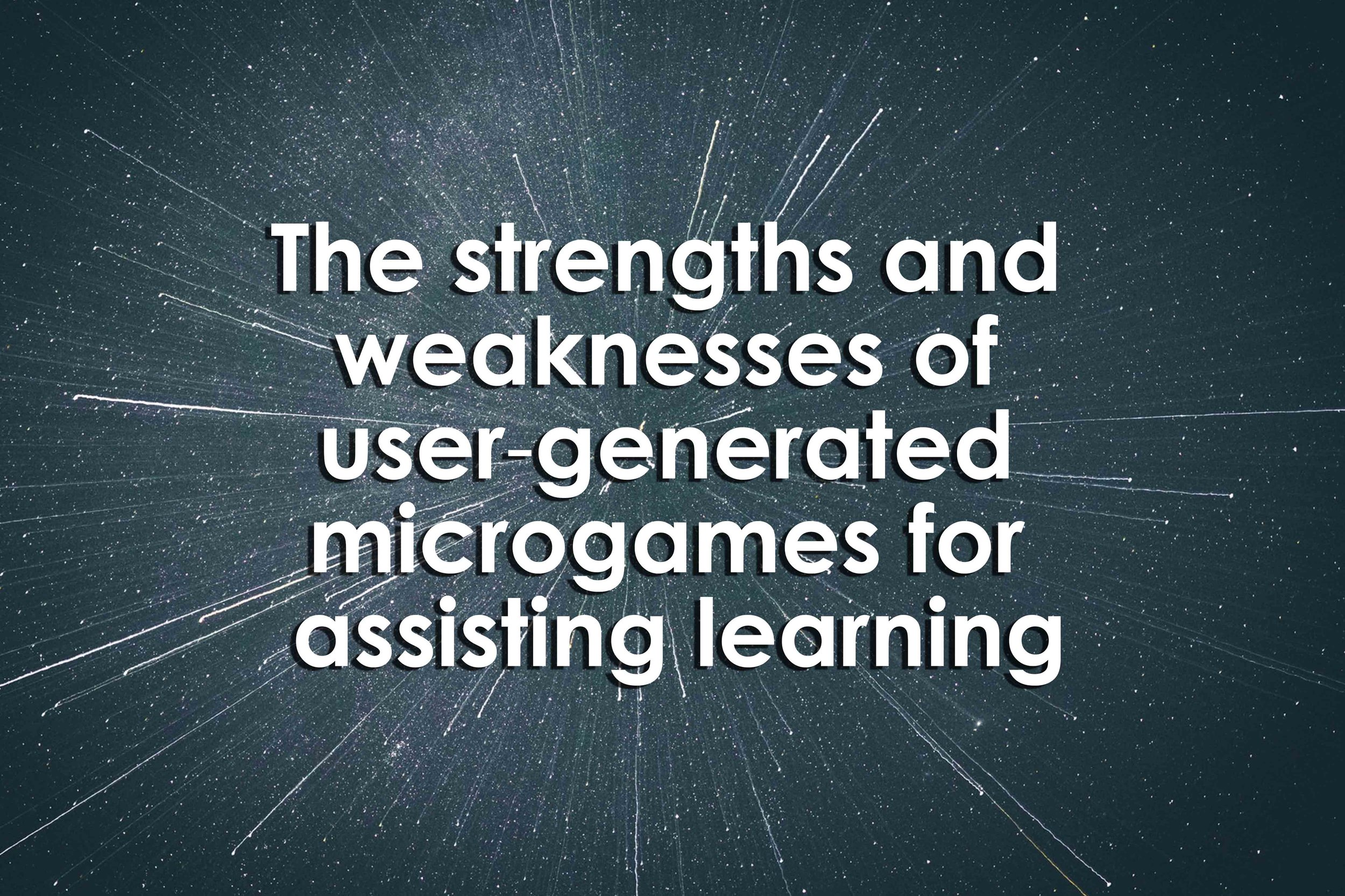The strengths and weaknesses of user‐generated microgames for assisting learning
The strengths and weaknesses of user‐generated microgames for assisting learning
The strengths and weaknesses of user‐generated microgames for assisting learning
By Imam Fitri Rahmadi, Zsolt Lavicza, Selay Arkün Kocadere, Tony Houghton and Markus Hohenwarter
Abstract
“Recent developments in educational technology have led to a renewed interest in the utilisation of user-generated microgames for facilitating learning. The advantages and disadvantages of microgames which have been voluntarily created, modifed, shared and used by users on open learning platforms to support learning are not yet clearly understood. The present study explores the strengths and weaknesses of user-generated microgames for assisting learning followed with some recommendations for the development and efective use of microgames from elementary teacher perspectives. This study is exploratory research conducted within the GeoGebra application with the participation of elementary school teachers from Indonesia. The study found that, on the one hand, user-generated microgames have multiple advantages to support learning mainly by their simplicity and short duration gameplay. On the other hand, the games have several disadvantages, especially due to the lack of content directly related to learning objectives and less interesting interfaces. It is recommended for users of open learning platforms to create more targeted microgames respecting a particular learning objective and for teachers to creatively connect games to learning for mastering knowledge, skills, or literacies.”
Reference
Rahmadi, I., Lavicza, Z., Arkün Kocadere, S., Houghton, T., & Hohenwarter, M. (2021, July 02). The strengths and weaknesses of user-generated microgames for assisting learning. Retrieved November 11, 2021, from https://link.springer.com/article/10.1007/s10639-021-10635-8
Keyword
User-generated microgames, microgame-based learning, educational microgames, serious games, game-based learning, research

